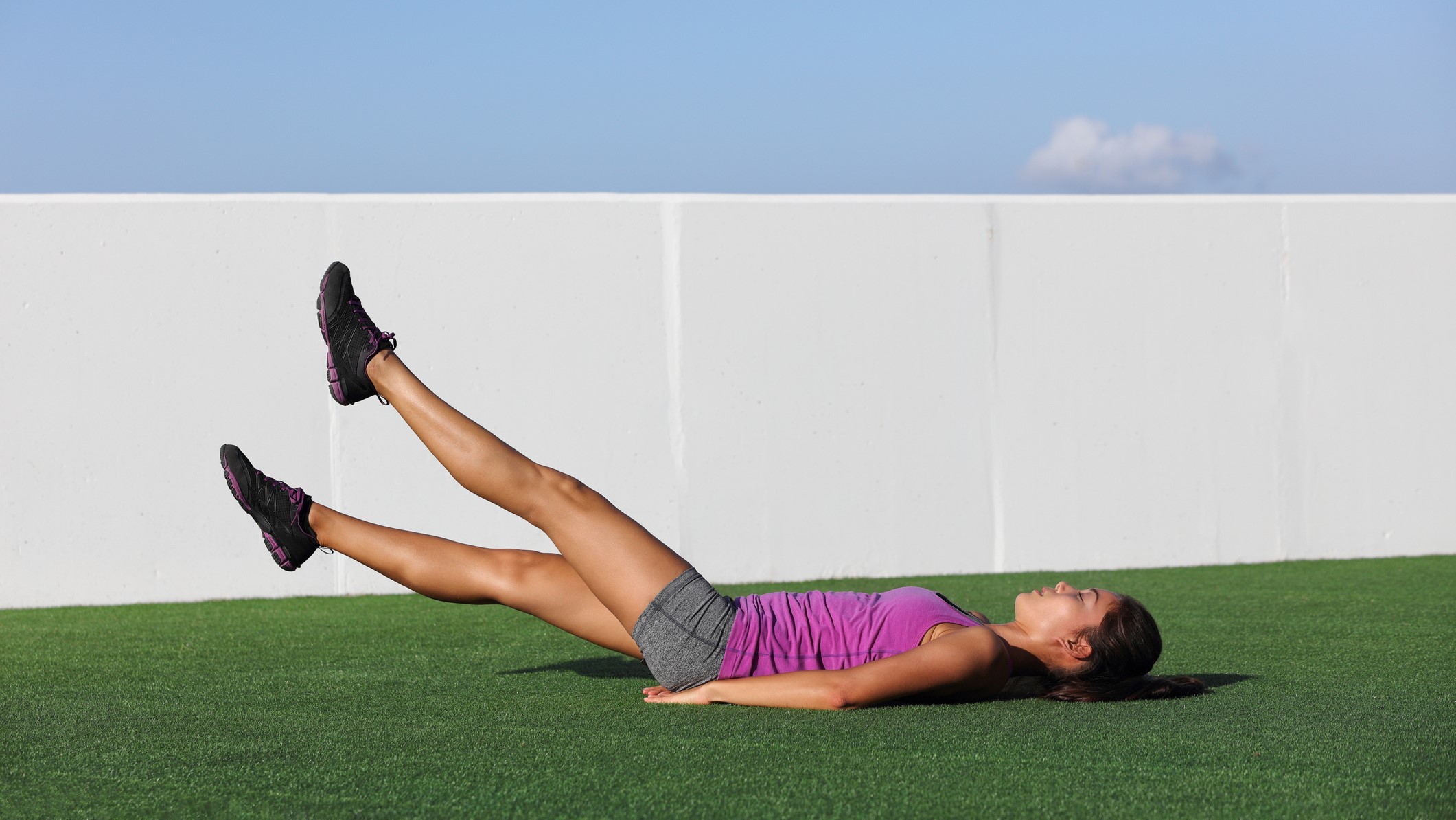
Scissor crunches kick up a fast burn in the abs and hip flexors using a vertical scissoring leg motion. Unlike flutter kicks, butterfly kicks, or scissor kicks (so much kicking), the scissor crunch uses a much bigger leg motion similar to the blades of scissors as you use them, hence the name.
What makes the move more intense is the position of your torso. You’ll lift your upper back away from the mat, brace your stomach and maintain a slight crunch through the abs to increase core engagement and look forward rather than at the ceiling. There are several ways to make the exercise even more challenging.
Recently, I added the core exercise to my routine, and there are three reasons why I recommend trying them and adding them to your core workouts. I’ve also included some tips for scaling the move, benefits and a follow-along how-to video.
How to do scissor crunches with perfect form
I recommend one of the best yoga mats for this exercise as you’ll want some cushioning for your back.
- Start on your back with your legs extended and arms by your sides
- Slightly tuck your pelvis toward you to flatten your lower back into the mat
- Lift your upper back, then brace your stomach to create tension through your core
- Press your palms into the mat close to your hips or place your hands across your chest or behind your head to progress the exercise
- Lift your legs, point your toes and kick your legs up and down without touching the ground
After trying them out for myself, I found that they were an effective, challenging and versatile way to work my midsection. Here's three reasons I think you should add the scissor crunch to your abs workouts too.
The abs move is a compound exercise
A compound exercise might sound technical, but it just means a move that targets several muscle groups rather than one. Isolation exercises are great for zeroing in on a particular muscle and working it to fatigue.
To get the most back from workouts, I recommend prioritizing compound moves as the main portion of your workout and adding isolation exercises at the end.
It's a core-torcher
The scissor crunch abs exercise targets the rectus abdominis (known as the abs) that run down the front of your stomach, including the lower abs, and the transverse abdominis (the deepest core muscle), obliques, quads, hip flexors, glutes, hamstrings and adductors.
Two core muscle groups aiding stabilization and posture are the hip flexors and transverse abdominis; the hip flexors help lift and hold your legs in the air and the transverse abdominal muscles support posture, stability and balance.
You don’t want your hip flexors to take too much heat because it signals they’re compensating for a lack of core strength and you might not be engaging your core properly.
Learn how to engage your core first to help develop your mind-muscle connection, and try to drive the movement through your stomach with the help of your hips and legs, pressing your lower back down without arching your spine — imagine bracing your stomach for someone to punch you in the gut.
It's easy to scale
Your arm positioning also determines how intense the exercise becomes. Either position your hands on the mat next to your hips or beneath your lower back just above your bum for an easier variation or behind your head or across your chest for a harder version.
You can also softly bend the knees if keeping them straight feels too challenging. Remember the kicks need to be expansive and sweeping rather than fast and short, otherwise, you’re veering toward flutter kicks. Aim to lower one leg a few inches from the floor while the other kicks toward the ceiling as you alternate.
Keep tension through your torso by lifting the upper back and gently crunching the stomach; you might also find it easier to flatten your lower back. To progress the crunch variation even further, hold a weight in both hands above your head or in front of your chest.
How to add the scissor crunch to your workouts
Learning a new abs exercise might sound fun (to some of us), but how do you program it?
To help you find your feet (or abs), I recommend trying these three 10-minute ab workouts and substituting one exercise for scissor crunches. If you find the move hurting your lower back, stop immediately.
We know that having a personal trainer to hand isn’t affordable to everyone, but where possible, check your form with a member of staff and scale exercises to your ability level.







